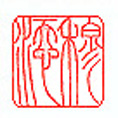— skip to next extract

There are, I think, two rough earthenware beakers for brackish drinking water. These are circulated from time to time, but the two of us are lying in an unfavourable position, and usually when a beaker reaches us it is empty. There are no sanitary provisions, so that we are all lying in our own faeces and urine. The stench is appalling.
I am nevertheless trying to keep my mind calm, and trying to help Philodemus, who is next to me, to do the same. We do this in various ways, for instance by reciting the poets, in a low voice, or talking philosophy. I also occupy myself by composing, correcting and silently reciting the present description of our captivity, so that the scene will be well-fixed in my mind, if I survive. Sometimes, these activities annoy our neighbours. But I suppose that the hundred or so of us who are incarcerated here would be glad to help each other. We have no way of doing so, except by speech. And what is there to say to other victims, unknown to us?
This hell-hole is a step in the search which Philodemus and I have undertaken, and, I try to assure myself, the next step will come soon, and be better than our present condition.
From time to time, one of the guards comes in, holding a torch and inspecting our labels until he finds what he is looking for. I can’t see my own label, but Philodemus’s reads ‘Ψα ''’. When he finds the right labels, the guard will take one or more prisoners out of the cave. We do not know how or why the choice is made, or what will happen to those who are taken out.
(2/2)